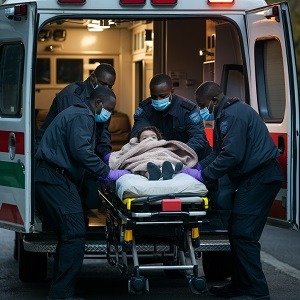A recent study published in Resuscitation Plus reveals alarming disparities in outcomes for children experiencing out-of-hospital cardiac arrest (POHCA) across different communities in the United States. The research, conducted from 2021 to 2023, analyzed data from 27,137 cases of pediatric cardiac arrest, uncovering significant links between social determinants of health and survival rates.
Communities with lower levels of minority races and ethnicities showed higher odds of bystander cardiopulmonary resuscitation (CPR) performance and return of spontaneous circulation (ROSC). Wealthier neighborhoods demonstrated increased likelihood of bystander CPR, automated external defibrillator (AED) usage, and ROSC compared to the poorest areas.
Educational attainment emerged as a crucial factor, with communities boasting the highest levels of education exhibiting significantly better odds of bystander AED usage and ROSC. Conversely, as minority status and poverty levels increased, and educational attainment decreased, a troubling trend of reduced bystander CPR, AED usage, and ROSC became apparent.
The study highlights the urgent need for targeted public health interventions to address these disparities. Implementing community-based CPR and AED training programs in underserved areas could potentially save countless lives. Additionally, addressing the root causes of these inequalities, such as poverty and lack of education, is crucial for improving overall health outcomes.
These findings underscore the complex interplay between social factors and health outcomes, emphasizing the importance of considering socioeconomic status, education, and racial demographics in developing strategies to improve pediatric cardiac arrest survival rates across all communities.
See: “Social Factors Influence Pediatric Out-of-Hospital Cardiac Arrest Outcomes” (December 18, 2024)



